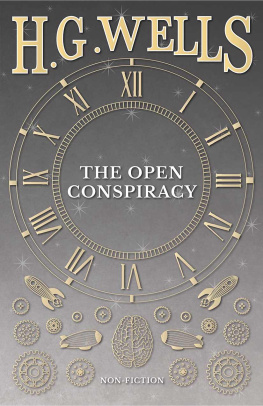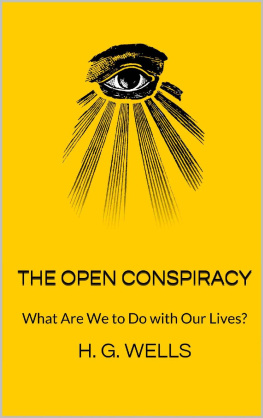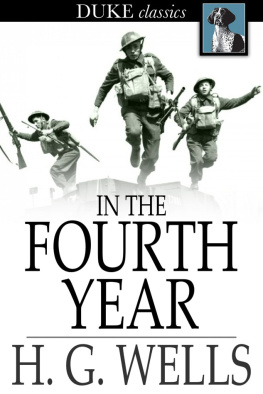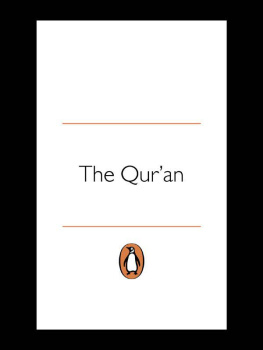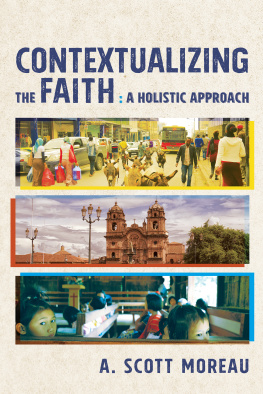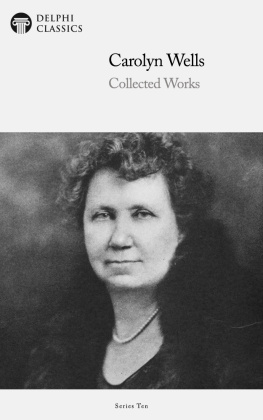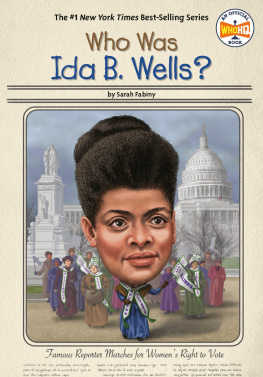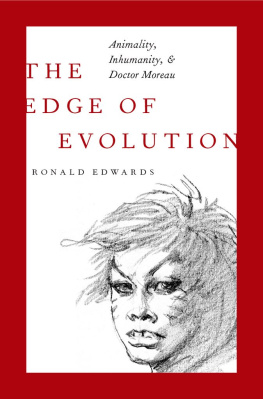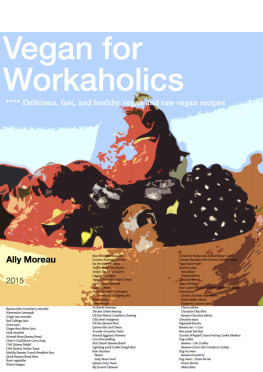H.G. Wells - The Island of Dr Moreau (Penguin Classics)
Here you can read online H.G. Wells - The Island of Dr Moreau (Penguin Classics) full text of the book (entire story) in english for free. Download pdf and epub, get meaning, cover and reviews about this ebook. year: 2005, publisher: Penguin Classics, genre: Art. Description of the work, (preface) as well as reviews are available. Best literature library LitArk.com created for fans of good reading and offers a wide selection of genres:
Romance novel
Science fiction
Adventure
Detective
Science
History
Home and family
Prose
Art
Politics
Computer
Non-fiction
Religion
Business
Children
Humor
Choose a favorite category and find really read worthwhile books. Enjoy immersion in the world of imagination, feel the emotions of the characters or learn something new for yourself, make an fascinating discovery.

The Island of Dr Moreau (Penguin Classics): summary, description and annotation
We offer to read an annotation, description, summary or preface (depends on what the author of the book "The Island of Dr Moreau (Penguin Classics)" wrote himself). If you haven't found the necessary information about the book — write in the comments, we will try to find it.
The Island of Dr Moreau (Penguin Classics) — read online for free the complete book (whole text) full work
Below is the text of the book, divided by pages. System saving the place of the last page read, allows you to conveniently read the book "The Island of Dr Moreau (Penguin Classics)" online for free, without having to search again every time where you left off. Put a bookmark, and you can go to the page where you finished reading at any time.
Font size:
Interval:
Bookmark:

THE ISLAND OF DOCTOR MOREAU
H. G. WELLS, the third son of a small shopkeeper, was born in Bromley in 1866. After two years apprenticeship in a drapers shop, he became a pupil-teacher at Midhurst Grammar School and won a scholarship to study under T. H. Huxley at the Normal School of Science, South Kensington. He taught biology before becoming a professional writer and journalist. He wrote more than a hundred books, including novels, essays, histories and programmes for world regeneration.
Wells, who rose from obscurity to world fame, had an emotionally and intellectually turbulent life. His prophetic imagination was first displayed in pioneering works of science fiction such as The Time Machine (1895), The Island of Doctor Moreau (1896), The Invisible Man (1897) and The War of the Worlds (1898). Later he became an apostle of socialism, science and progress, whose anticipations of a future world state include The Shape of Things to Come (1933). His controversial views on sexual equality and womens rights were expressed in the novels Ann Veronica (1909) and The New Machiavelli (1911). He was, in Bertrand Russells words, an important liberator of thought and action.
Wells drew on his own early struggles in many of his best novels, including Love and Mr Lewisham (1900), Kipps (1905), Tono-Bungay (1909) and The History of Mr Polly (1910). His educational works, some written in collaboration, include The Outline of History (1920) and The Science of Life (1930). His Experiment in Autobiography (2, 1934) reviews his world. He died in London in 1946.
PATRICK PARRINDER took his MA and Ph.D. at Cambridge University, where he held a Fellowship at Kings College and published his first two books on Wells, H. G. Wells (1970) and H. G. Wells: The Critical Heritage (1972). He has been Chairman of the H. G. Wells Society and editor of the Wellsian, and has also written on James Joyce, science fiction, literary criticism and the history of the English novel. His book Shadows of the Future (1995) brings together his interests in Wells, science fiction and literary prophecy. Since 1986 he has been Professor of English at the University of Reading.
MARGARET ATWOOD was born in 1939 in Ottawa and grew up in northern Ontario and Quebec, and Toronto. She received her undergraduate degree from Victoria College at the University of Toronto and her masters degree from Radcliffe College.
Throughout her thirty years of writing, Margaret Atwood has received numerous awards and several honorary degrees. She is the author of more than thirty-five volumes of poetry, fiction and non-fiction and is perhaps best known for her novels, which include The Edible Woman (1970), The Handmaids Tale (1983), The Robber Bride (1994), Alias Grace (1996) and The Blind Assassin, which won the 2000 Booker Prize. Her latest work of non-fiction, Negotiating With the Dead: A Writer on Writing, was published in 2002 and in April 2003, her eleventh novel, the Man Booker Prize-nominated Oryx and Crake, was released to great acclaim. Her work has been published in more than thirty languages, including Farsi, Japanese, Turkish, Finnish, Korean, Icelandic and Estonian.
Margaret Atwood currently lives in Toronto with novelist Graeme Gibson.
STEVEN MCLEAN has recently completed his Ph.D. in the Department of English Literature at the University of Sheffield. His thesis investigates the relationship between H. G. Wellss scientific romances and the discourses of science in the 1890s and early 1900s. Steven has published on Wellss early fiction. He is the current Secretary of the H. G. Wells Society.
H. G. WELLS
Edited by PATRICK PARRINDER
With an Introduction by MARGARET ATWOOD
and Notes by STEVEN MCLEAN
PENGUIN BOOKS
PENGUIN BOOKS
Published by the Penguin Group
Penguin Books Ltd, 80 trand, London WC2R ORL, England
Penguin Group (USA) Inc., 375 Hudson Street, New York, New York 10014, USA
Penguin Group (Canada), 10 Alcorn Avenue, Toronto, Ontario, Canada M4V 3B2
(a division of Pearson Penguin Canada Inc.)
Penguin Ireland, 25 St Stephens Green, Dublin 2, Ireland
(a division of Penguin Books Ltd)
Penguin Group (Australia), 250 Camberwell Road,
Camberwell, Victoria 3124, Australia (a division of Pearson Australia Group Pty Ltd)
Penguin Books India Pvt Ltd, 11 Community Centre,
Panchsheel Park, New Delhi 110 017, India
Penguin Group (NZ), cnr Airborne and Rosedale Roads, Albany,
Auckland 1310, New Zealand (a division of Pearson New Zealand Ltd)
Penguin Books (South Africa) (Pty) Ltd, 24 Sturdee Avenue,
Rosebank 2196, South Africa
Penguin Books Ltd, Registered Offices: 80 Strand, London WC2R 0RL, England
www.penguin.com
First published 1896
This edition first published in Penguin Classics 2005
5
Text copyright the Literary Executors of the Estate of H. G. Wells
Biographical Note, Further Reading, Note on the Text copyright Patrick Parrinder, 2005
Introduction copyright Margaret Atwood, 2005
Notes copyright Steven McLean, 2005
All rights reserved
The moral right of the editors has been asserted
Except in the United States of America, this book is sold subject
to the condition that it shall not, by way of trade or otherwise, be lent,
re-sold, hired out, or otherwise circulated without the publishers
prior consent in any form of binding or cover other than that in
which it is published and without a similar condition including this
condition being imposed on the subsequent purchaser
Herbert George Wells was born on 21 September 1866 at Bromley, Kent, a small market town soon to be swallowed up by the suburban growth of outer London. His father, formerly a professional gardener and a county cricketer renowned for his fast bowling, owned a small business in Bromley High Street selling china goods and cricket bats. The house was grandly known as Atlas House, but the centre of family life was a cramped basement kitchen underneath the shop. Soon Joseph Wellss cricketing days were cut short by a broken leg, and the family fortunes looked bleak.
Young Bertie Wells had already shown great academic promise, but when he was thirteen, his family broke up and he was forced to earn his own living. His father was bankrupt, and his mother left home to become resident housekeeper at Uppark, the great Sussex country house where she had worked as a ladys maid before her marriage. Wells was taken out of school to follow his two elder brothers into the drapery trade. After serving briefly as a pupil-teacher and a pharmacists assistant, in 1881 he was apprenticed to a department store in Southsea, working a thirteen-hour day and sleeping in a dormitory with his fellow-apprentices. This was the unhappiest period of his life, though he would later revisit it in comic romances such as Kipps (1905) and The History of Mr Polly (1910). Kipps and Polly both manage to escape from their servitude as drapers, and in 1883, helped by his long-suffering mother, Wells cancelled his indentures and obtained a post as teaching assistant at Midhurst Grammar School near Uppark. His intellectual development, long held back, now progressed astonishingly. He passed a series of examinations in science subjects and, in September 1884, entered the Normal School of Science, South Kensington (later to become part of Imperial College of Science and Technology) on a government scholarship.
Next pageFont size:
Interval:
Bookmark:
Similar books «The Island of Dr Moreau (Penguin Classics)»
Look at similar books to The Island of Dr Moreau (Penguin Classics). We have selected literature similar in name and meaning in the hope of providing readers with more options to find new, interesting, not yet read works.
Discussion, reviews of the book The Island of Dr Moreau (Penguin Classics) and just readers' own opinions. Leave your comments, write what you think about the work, its meaning or the main characters. Specify what exactly you liked and what you didn't like, and why you think so.

